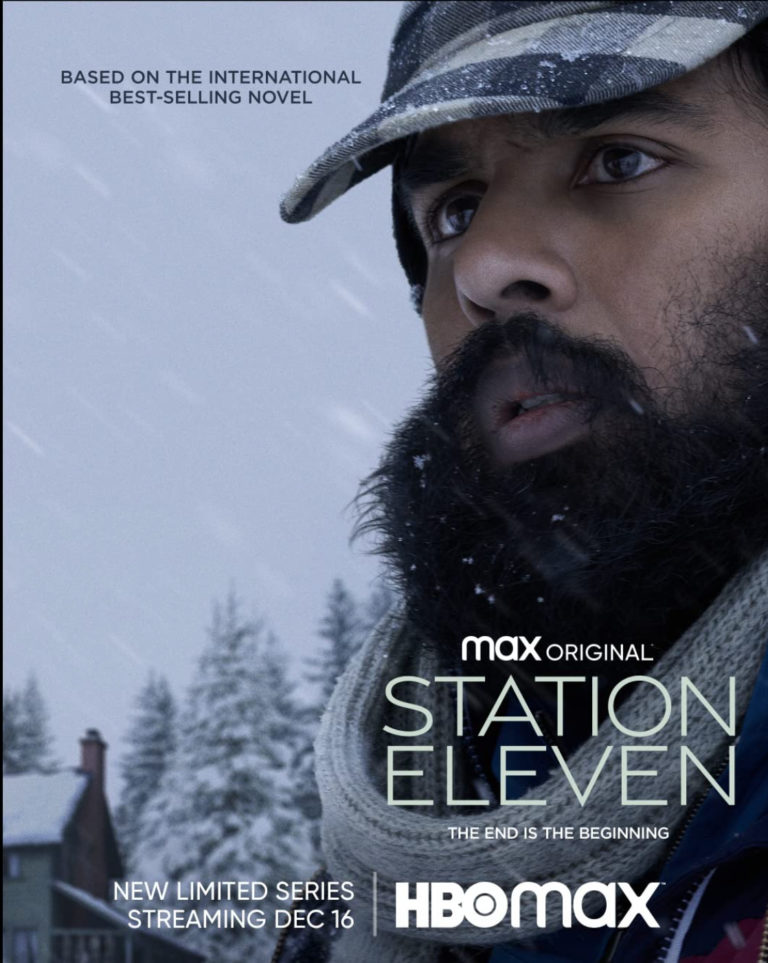
Synopsis : A post-apocalyptic saga spanning multiple timelines, this limited drama series tells the stories of survivors of a devastating flu as they attempt to rebuild and reimagine the world anew while holding on to the best of what’s been lost.
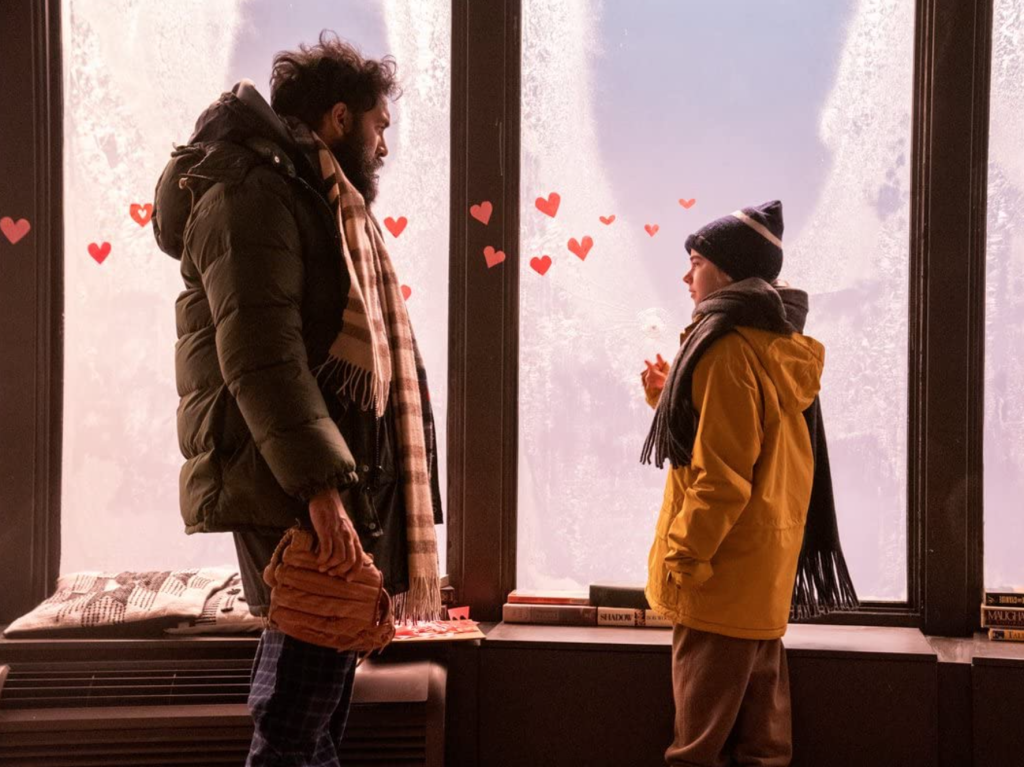
An Interview with Actor Himesh Patel, Actress Mackenzie Davis
Q : Would it be different for you if you had done this and the pandemic didn’t exist? What would that change for you?
HP: Some of it – all of it, really. All of it except episode one and episode three which we shot before. They would remain the same. But otherwise – not that we’ve changed the story. That would remain what it was always going to be. But the context of making it, and the way that we were thinking about it, is completely changed.
MD: I think the production, which then comes into the story in ways that aren’t easy to identify. But we went through the pandemic and the year of lockdown, and then we were locked down from shooting this as well in winter in Toronto, which everybody felt. It was Groundhog Day for so many people over the last few years. There was something – it was not casual.
Q : Your characters know each other but in different timelines. I want to ask you, what will each one of you will say to the other one if they have the chance to reunite?
HP: If the character had a chance?
Q: Yeah.
MD: “Where you been?”
HP: Yeah. “Where you been?” and “How are you?” Yeah. I’ll keep it as simple as that for now.
Q : I thought it was very powerful the way the drama uses Shakespeare. Do you agree on that point, and do you think it makes it something of an unique post-apocalyptic drama?
MD: Yeah. My catalogue of post-apocalyptic dramas may be unfinished, so I’m not sure if we’re the only ones that does this. But we were saying before just how the structure of uncertainty of these plays still are in our 2020 era for new meaning, and there’s revivals.
I just saw “Macbeth” last week, and I saw “Hamlet” two weeks before that. We’re not stopping making these plays; for some reason there’s an enduring human interest in them. But there’s also a finite collection of them, and I think the structure of that provides a degree of certainty in an uncertain world for these characters who have chosen the most uncertain way of living in that world.
Q: Do you feel the same, Himesh, as well?
HP: Yeah, of course, I couldn’t really put it any better than Mackenzie has.
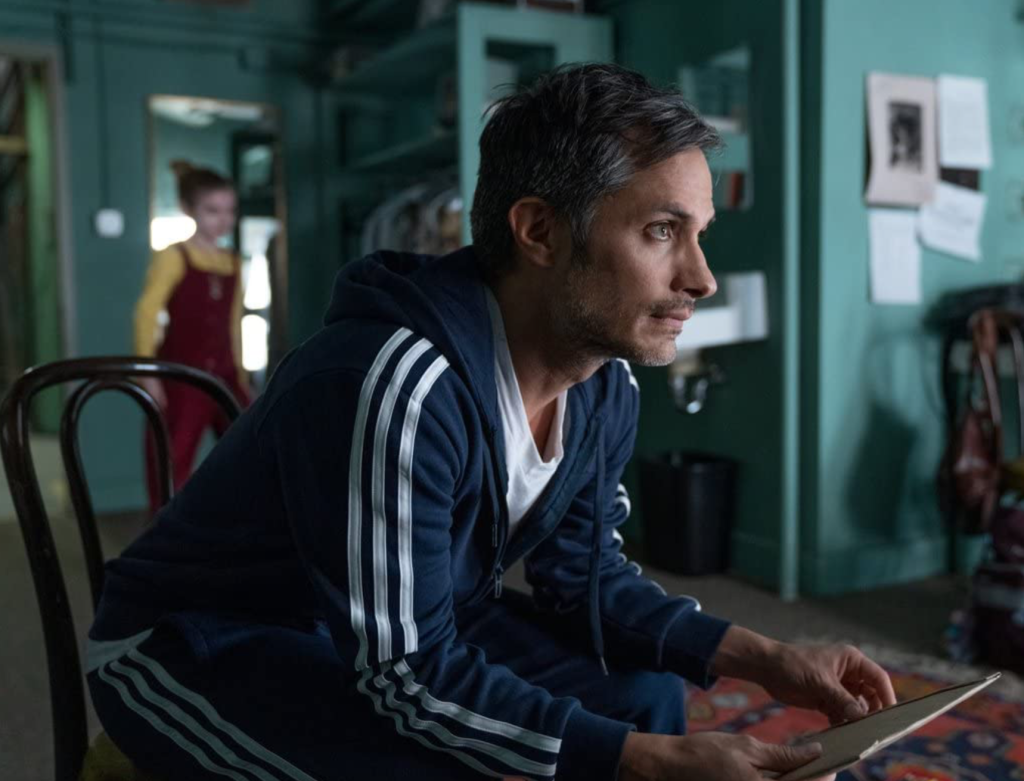
Q : Hi. The original book is about the life of an actor and what it means to be devoted to an art, in a way. How much did they use this book as material? As an actor, how much did you relate to that element?
HP: As an actor? I guess you’re playing the actor, Mackenzie. I wouldn’t know anything about what it is to devote myself to being an actor —
MD: No no, let me handle it please. It’s something that Patrick, who is writing this show, and myself and other people spoke a lot about how there’s this sort of echo in the show of what was happening in our real life. It’s like a single-focus, obsessive pursuit of something – and it doesn’t have to be the arts, but that’s the field that we work in. And it can be to the detriment of your personal life, and your relationships, and your mental health but you just keep moving forward until you finish the thing that you have to finish when you’re building something.
It’s very positive, and it also like takes a lot out of you. I think there’s something about this survival story that echoes really throwing yourself into your career or your art, in a way. But it can feel sort of like life-and-death sometimes. It’s not, for anybody else around you, but for you it can feel like life-and-death.
Patrick was playing with echoing that in the structure of the story in having these big, huge dramatic moments through Shakespearean reconciliations onstage, and treating them like life-and-death moments. Because that’s what it feels like sometimes. And sometimes it’s just chill as hell.. You never know.
Q : I was wondering if you could chat about out those time jumps a little bit. How did you get yourself in the mindset of it before pandemic, after pandemic, and how did you monitor it? Was it a bit confusing about I’m this bit along – I’m this far in. I was wondering how it was for you guys.
HP: You put it very well, “on this bit along”. That was actually how I measured when I wrapped in the beginning of June, I think it was. I looked at myself in January when we started and I measured – I didn’t literally measure it, but the length of my beard went from what it is now to about there. It really brought home to me how long we’ve been on this show. Frankly, that is my answer: my beard was how I kept track of time.
Q: What about you, Mackenzie? You didn’t have the beard, obviously, how else did you get –
MD: Right now, bangs, so it’s sort of a similar experience. Couldn’t tuck it and then could tuck it at the end. I think I had less to do with this than Himesh did.
I was on a pretty strict two-week timeline, honestly, of what happened in the life of Kirsten in the future.
And then a lot of the time jumps just happened in the edit. So I didn’t really have to contribute to them.
Q : “Station Eleven” is also a kind of a road movie with picturesque landscapes. What locations did you shoot in, and which ones do you remember the most?
HP: Well, we shot from January. I think we maybe started rolling February, I don’t remember. But it was winter in Canada, anyway, and it was harsh at times. Certainly Jeevan gets put through his paces and so I did, as well. I had never seen snow like it, and I will never complain about the snow in London ever again. If we ever get snow in London again.
We shot some stuff up in Muskoka, which was just stunning, really beautiful, especially because the time that we shot, it was completely blanketed in show, and there was a wonderful sort of peace to that. The lake was completely frozen over, and I had never seen a lake completely frozen over like that.
So it made this thing that made this world now, as we speak, it’s where they’re alive, and crashing waves and everything, just to see it completely still. There was something really peaceful about that.
MD: The Travelling Symphony, everything, was shot within an hour or two of Toronto or within an hour or two outside Toronto. But I’m Canadian, I’m from Vancouver, and I’ve been to Toronto a bunch of times, but not really on the outskirts of it as much. But it was so, so beautiful and really made me – not the snow, the snow I had some experience with, it’s like, “that’s fine. Mitch can do that.”
But once we were out in the full summer and rolling hills of Ontario – it’s a very beautiful province, if you ever have been. Just gorgeous. But we shot half the show indoors, and then it switched and then we shot outdoors for the rest of the show. So I have a sort of tickertape parade of beautiful images of Canadian wilderness in my mind. One day it snowed in June! We had to cancel shooting because it snowed in the middle of June.
HP: Yeah, actually. I think my last day was the end of May and it started snowing. We almost had to push my last day. Wonder why that was happening.
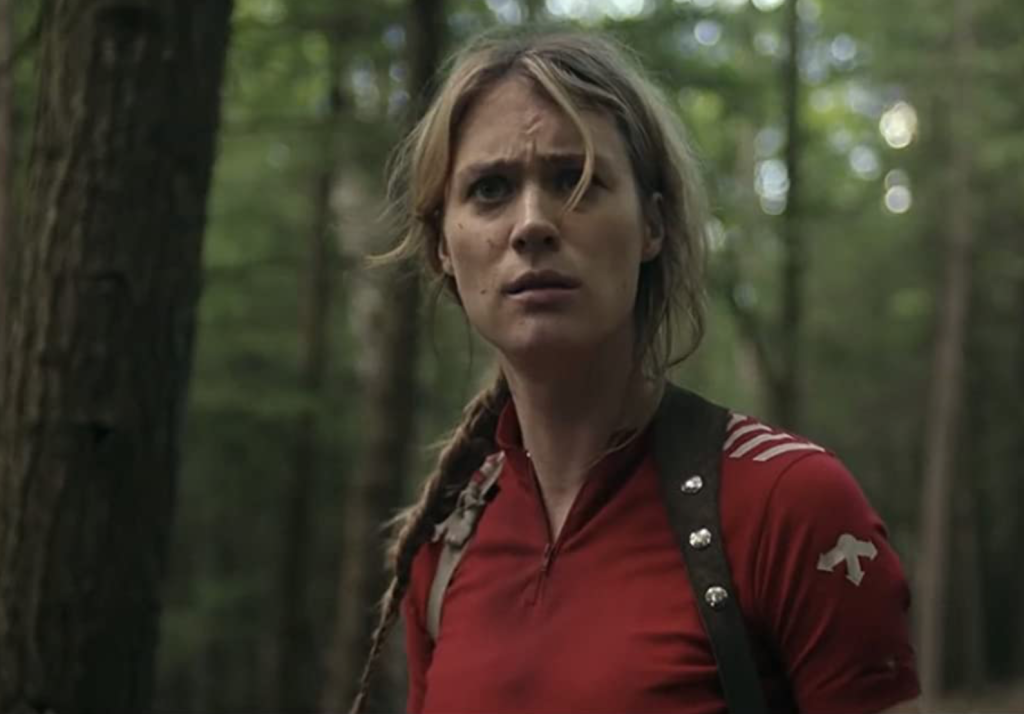
Q : Patrick Somerville created “Maniac”, he also wrote some episodes of “The Leftovers”. How familiar were you with his works, and how do you describe the creative process with him?
HP: I had seen “Maniac”.
MD: Yeah, I’d seen “Maniac”. Patrick can hold an almost inhuman amount of stories in his mind at one time, as is evidenced by the structure of the show. He’s really collaborative and he has a lot of space for a lot of enormous, epic stories all at once that I think all of us were kind of amazed by.
We were like, “Hey, what’s happening with mine? We tried to just get clarity for one, but he had the whole three-dimensional map in his head. I’m imagining like “Mission: Impossible” like his hand in hands and then turning it. Like he really had the whole world in his head. It was pretty amazing.
HP: I was thinking about it in the sense of these creatures in “Arrival” that can kind of perceive time in a way that humans just cannot. I think he perceives stories in the way that I just can’t. So as actors we were coming to, we need to know about this thing. He gets there, obviously, but he’s talking about it in a sort of all-encompassing way. Because it’s like the story, every beat of the story exists in his head at the same moment. It’s pretty amazing.
Q : So the original book has millions of fans worldwide as well as in Japan. What in your opinion makes this TV series adaption the most exciting or amusing to those big fans?
MD: I imagine the discovery that it departs quite a bit from the book could be exciting journey to go on. The characters – Kirsten, Jeevan, Tyler, the characters from the book are in the show, the locations are in the show, there is some sort of indelible visuals that you recognize from the book. But it’s kind of a world that expands beyond the one initially articulated by the book. Emily, the writer, has seen it and she loves it, I think as long as you can get your mind around it not being a beat-for-beat adaptation, you’ll be delighted by where we went with it.
Q : I like the fact that there’s quite a lot of moments of humor and tenderness in the drama. Do those moments stand out for you guys as well? I thought the premise of it sounded brilliant but bleak.
HP: Yeah. The humor is one of the things that sets it apart, for me, from a lot of the things that you may compare it to. Especially for me, working on the pilot, a lot of that had been my experience that came from Hiro Murai, producer and his sense of humor merging with Patrick’s sense of humor. It set a tone that we could sort of stick to for the rest of the show. I think a lot of the best things do this, where you can balance comedy and drama in a way the drama hits harder because it almost sideswipes you, in a way. Also, it lends a tone to the show which is one of ultimately hope and joy.
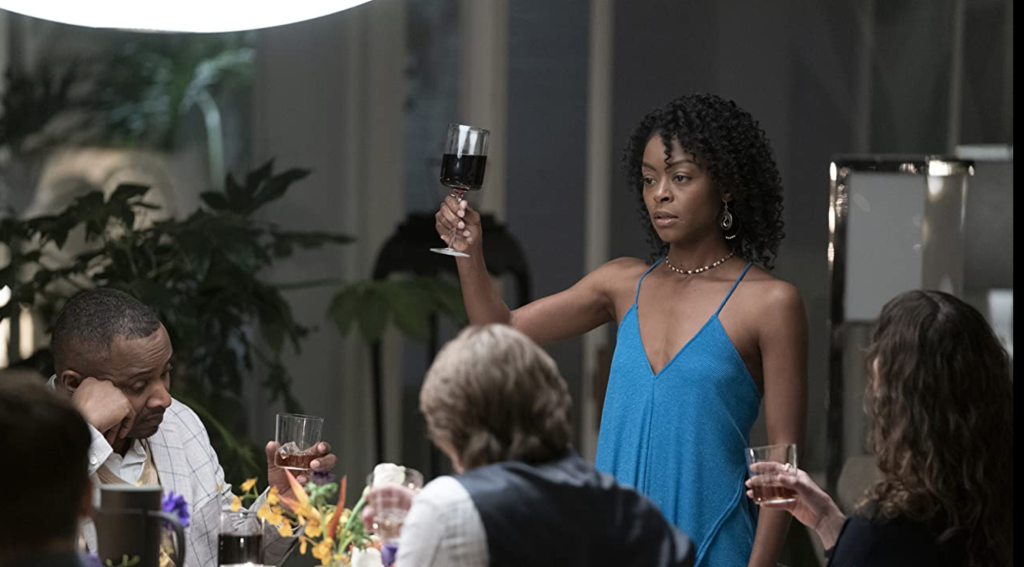
Q : Yes. In the series is this figure of the Museum of Civilization, that it’s some kind of sounds of the Earth from the way it was. I want to ask you what object would you put in the Museum of Civilization if you had the chance?
HP: Gosh. That’s a really good question.
I feel like I need to really think about an answer, and not just . . .
Q : Because every object has enormous importance on the show for every character.
MD : This is just the sort of question you should have thought about in advance.
You know it’s going to come up. Just think about the Before.
HP: I feel like Jeevan – it would probably be his phone or something. As the story goes on, it becomes quite clear that Jeevan’s phone almost becomes a character for a brief moment, in one of the episodes. So if I was thinking about it from his point of view, it’d be the phone because it comes to represent something. It comes to represent a sense of loss.
MD: Kirsten loses her phone quite early, and apart from a line about loving Instagram, I do think she gets over it. I think with everything there is a problem, including this, that it is actually kind of wasteful. It’s not as good as it seems, but I do think being able to rent a bike anywhere, on your phone, and getting an Uber bike is one of the most incredible inventions and luxuries of living in the Common Era or the Current Era. I know they get really abused, and the batteries – they’re actually not that great, but it’s just the coolest thing, and I really love that convenience. So I’d put that down.
Q : It’s debatable that “Station Eleven” is a work of science fiction. I’d like to ask do you see it as a work of science fiction, and if not, what kind of genre it fits into for you?
HP: I suppose there are science fiction elements. But moreover, the actual Station Eleven within the Station Eleven is the science fiction, really.
MD: Is that speculative fiction?
HP: Yeah, that’s what it is.
MD: Especially now that the pandemic has happened, it feels – it’s not about anti-innovation, because people have to innovate ways to live. But if it’s like a return to something rather than –
HP : Like a regression kind of thing?
MD: Well, I don’t think it’s a regression. But I do think the arc in our current time — and I mean the last two hundred years – is marked by non-stop innovation and moving forward, forward, forward at the expense of climate and a lot of human comfort or human rights.
There’s something about Station Eleven that is like innovating on a very small level, adapting to survive rather than adapting to create garbage and move on to the next thing, which is the state that it feels like we’re in right now. So I think “speculative fiction”, yeah.
Q : This is a behind-the-scenes question. In episode 4 – because I’ve watched up to episode 4 – there’s a scene, Kirsten and Jeevan’s lines synchronized perfectly in different time settings. How did you film that scene? Was it like one of you started first and the other followed along?
HP: Yeah, chronologically, I guess, I would have done it first. But I don’t know. You can speak to whether you had to perfectly intonate it the same way that I did on a thing like that.
MD: We didn’t sync that at all. I don’t know how it worked, But I knew it was an echo of a line that he said to my younger self. But we weren’t working off of a sound recording or anything. It was just a stroke of good luck, and I think some manipulation in the sound department.
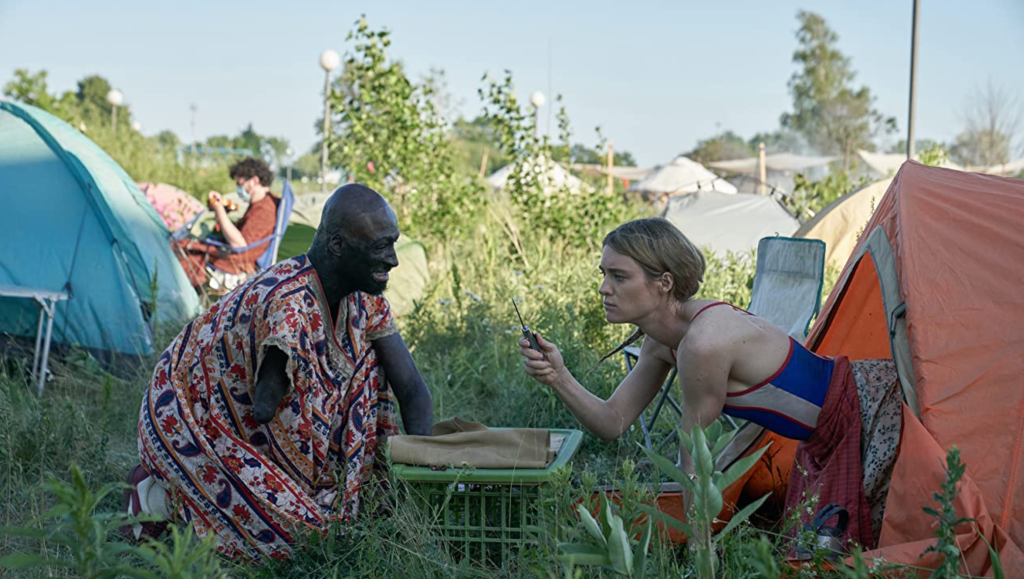
Q : In December we’ll see you in “Station Eleven” and “Don’t Look Up” and we’ll look at stories about the end of humanity, or the crisis of humanity. How do you describe the experience of jumping from one period to another and one character to another?
HP: Yeah, it was pretty strange in both projects being told the world ends and then having a panic attack. It’s a new niche that I’m building for myself. It’s very strange, very strange, to do the two projects that I wound up doing during the pandemic. One was about the pandemic and one was about the potential end of the world in a different way. It’s a very, very big coincidence. And the fact that they were both in development before the pandemic even happened. I’m still trying to wrap my head around the probability of that.
Q : Your character really loves the comic book “Station Eleven”. I was just wondering why that story in particular really grabs her and what is it about that story that she holds on to all of these years. What is it about that story for her?
MD: I think it’s less about the content of the story given who it comes from, which is this sort of godlike figure in her life. It is – not to put too fine a point on it – a kind of text given by a figure that she worships, and then it’s the last thing she has to hold on to. It does become this totemic thing for her, I think. The book itself is full of power: the book kills Frank, she has to hide the book, but the book also has, like, secrets that guide her in her life.
A lot of that is not at all in the show, it’s just what I think. Yeah, I like this idea that there is something that was so powerful and held so much emotion for her that it did become like a magical object.
There’s some movie or show where somebody can hold something but not hold it too long, it will burn you if you hold it too long. I forget the name. It’s like some magical object that you can’t hold for too long.
I think the book it’s that: it’s both dangerously full of meaning and power for her, but also has acted as a guide and a sort of stabilizing force in her life for a long time. To lose it would almost be more reckless than knowing where it was at all times and touching it periodically – but not for too long.
Q : Yes, I think that this is an easier question. I want to ask about the character of Arthur. Do you think that this character is like the glue of all the stories of every character?
MD: Yeah, I guess everybody spins around him, don’t they?
HP: Yeah, he’s sort of the middle of it all, in a way.
MD: Does anyone never touch him? Like Traveling Symphony members? I think everybody has touched Arthur at some point.
Q : I just wondered whether filming in the pandemic changed your approach to acting in any way, or whether it was more the logistics of filming so you couldn’t be close to other actors. Did it make your acting any more intense, do you think?
HP: The process of it all was pretty intense in a sense. There was a lot more to think about in terms of outside of action and cut. People coming in, you gotta put a shield on, make sure you’re sanitizing your hands, and all this sort of thing. I personally, when I work I like to get to know the crew, the core crew, as much as I can, because you’re carried by these people for months. And I still did; we still got to know each other.
But I didn’t see their faces until the last day, when for some reason everyone was given cupcakes, and so they had to take their masks off and eat their cupcakes. And it was the weirdest thing, because I’d made up half their faces for five months and then suddenly I got to see them. It was quite emotional, really. But yeah, it was strange. It was kind of odd; it took that away a little bit. In terms of actual work, I don’t know. I think we all managed to make it work for them. It’s a very personal thing, though.
MD: I think I developed an almost Pavlovian response to “Action” and getting ready to act. Because especially in the first part of the show, we were shooting indoors, in an airport which would give an indication how dead the world was that time that we were shooting. No planes were ever flying, so it was fine for sound. And it was very dark inside the place that we were filming for months and months and months. We were all wearing shields and masks, and there was like smoke and lights.
And because of the convex-ness of the shield, I couldn’t see anything, ever. I’d have to get so close to people’s faces to see them, and I felt like I was always walking through haze to get anywhere. And then when you get where you do your job, you take off your mask and see everything. Like it was this really stark shift from murky alienation into absolute clarity and it became really deeply desirable to me on set, and I’d get to act.
Here’s the trailer of the film.
https://www.youtube.com/watch?v=RaAG-SwEa7k

